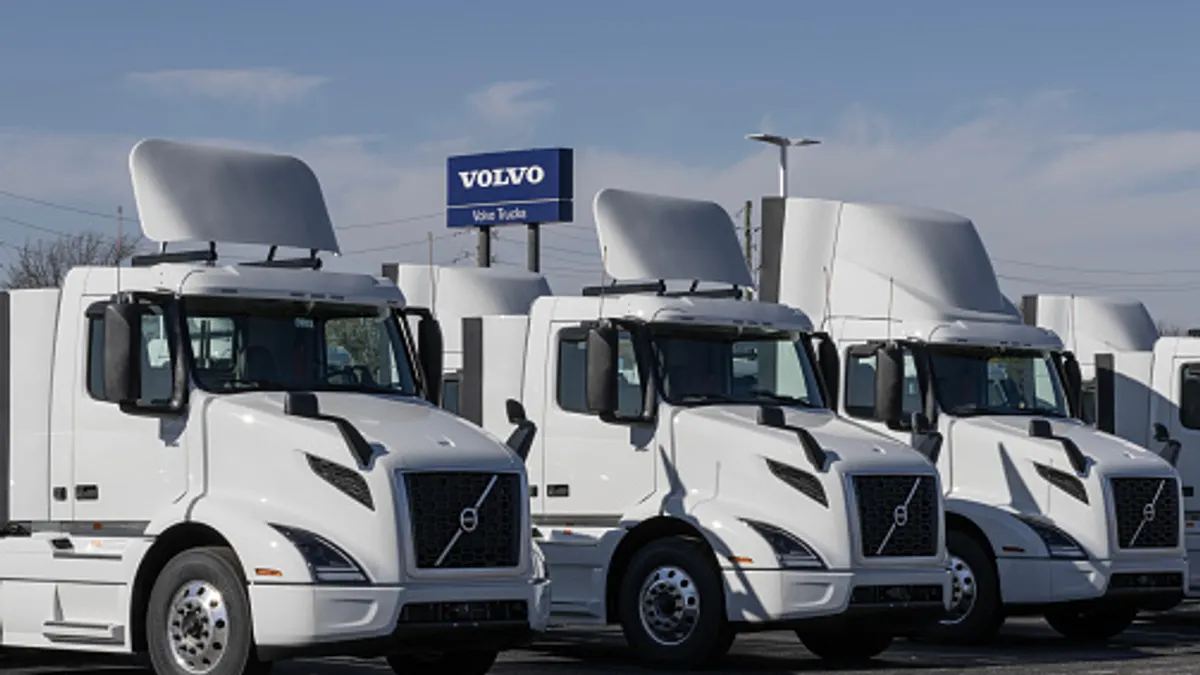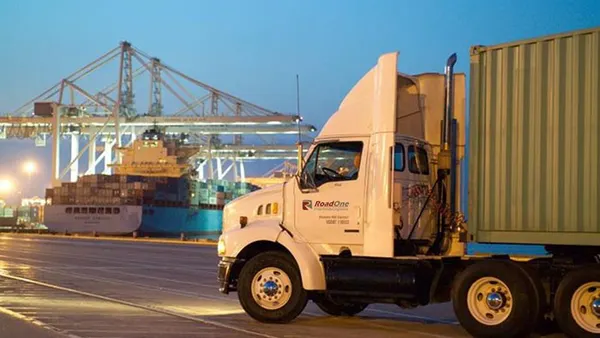Volvo Group, the first major truck manufacturer to report earnings since President Donald Trump announced his global reciprocal duties earlier this month, reported that overall truck sales fell 10% year over year in Q1 as tariff uncertainty grew.
Retail truck sales dropped 13% in North America alone, mostly due to weakness in Volvo’s long-haul segment, according to the company's Q1 earnings report. Because of a lack of clarity about the impact of tariffs, U.S. truck buyers have taken "a wait and see approach" to purchasing new vehicles, per the report.
Volvo has now lowered its 2025 North America sales forecast for heavy-duty trucks to 275,000, a drop of 25,000 from its initial projections. In 2024, Volvo's North American sales reached 308,141, the company reported.
Before new levies from the Trump administration this month, Volvo had expected U.S. truck buyers to purchase more 2025 models to avoid higher costs and technical uncertainties from the forthcoming Environmental Protection Agency regulation that toughens emission standards for heavy-duty engines starting with 2027 models.
However, the Trump administration has started retreating on the greenhouse-gas emissions rules set during the Biden administration for light-, medium- and heavy-duty vehicles, according to the EPA.The agency has reopened the greenhouse gas phase 3 standard and started reevaluating the Heavy-Duty Nitrous Oxide (NOx) rule under Trump’s watch. The Biden-era EPA had sought to remove the most harmful pollutants from diesel-powered trucks.
"There is no longer an expectation of a prebuy in 2025 due to EPA27," Volvo said in its Q1 earnings report.
Global vehicle sales, including for trucks, buses and construction equipment, declined 9% for Volvo in Q1, and "as the quarter went by, there was increased uncertainty surrounding tariffs and their effect on global trade," President and CEO Martin Lundstedt said in the report.
"In the fast-changing geopolitical landscape, it is too early to assess the full implications from the imposed tariffs," Lundstedt said.
Volvo plans to mitigate tariff impacts by adjusting its supply chain, changing production levels and reviewing sales agreements, pricing and other business terms with customers and partners, Lundstedt said. The company will implement the changes in key geographic markets.
The truck manufacturer recently responded to tariff-fueled uncertainty and slowing market conditions with preparations for hundreds of layoffs at its Pennsylvania and Maryland operations.
Volvo subsidiary Mack Trucks planned to lay off up to 350 people over the next 90 days at its Lehigh Valley Operations facility in Macungie, Pennsylvania, a spokesperson said in an April 18 email to Trucking Dive. Volvo also expects to lay off between 50 and 100 workers at its Hagerstown, Maryland, facility, a spokesperson said.
Nevertheless, U.S.-imposed tariffs and retaliatory duties from other countries have shaken the markets in which Volvo does business as well as the company's global and regional supply chains.
"The situation is fast-changing and complex to assess, and no predictions can be made on future developments, potential impacts on the Group or whether trade restrictions may impact the Group more severely than main competitors," the report said.
The tariffs could also raise costs for Volvo’s suppliers, potentially hiking the price of Volvo vehicles and making them less competitive, per the report.












